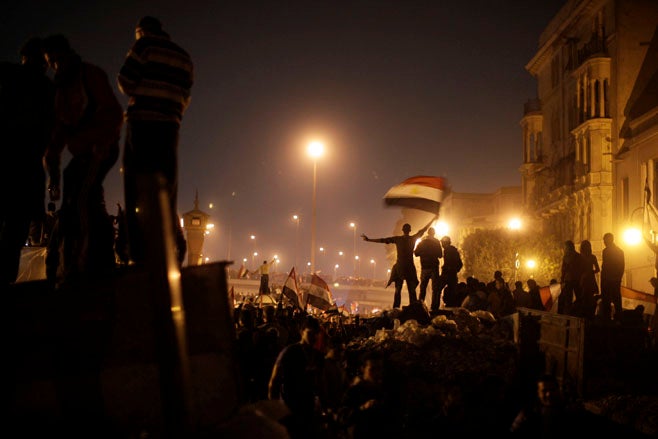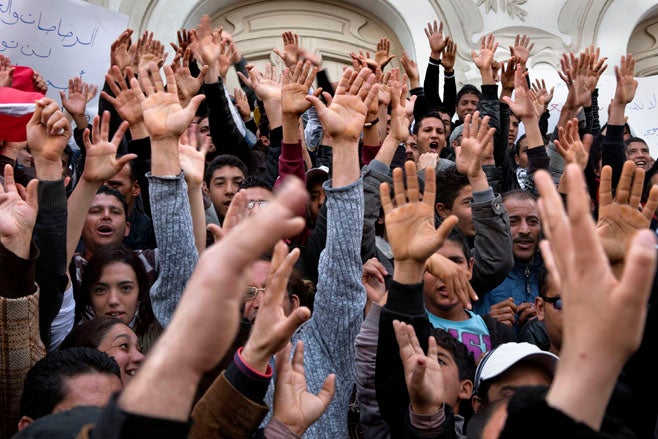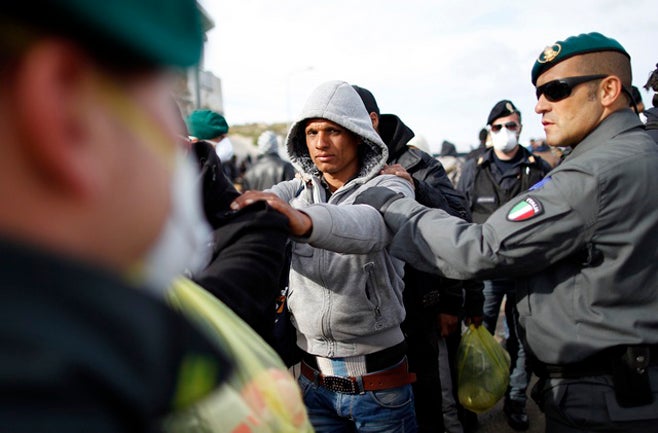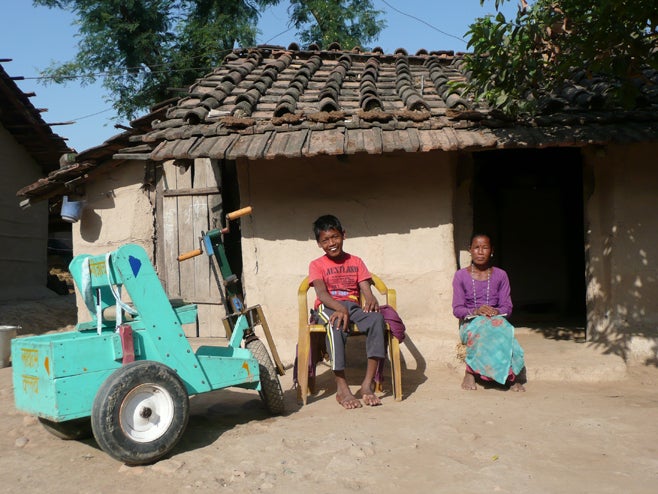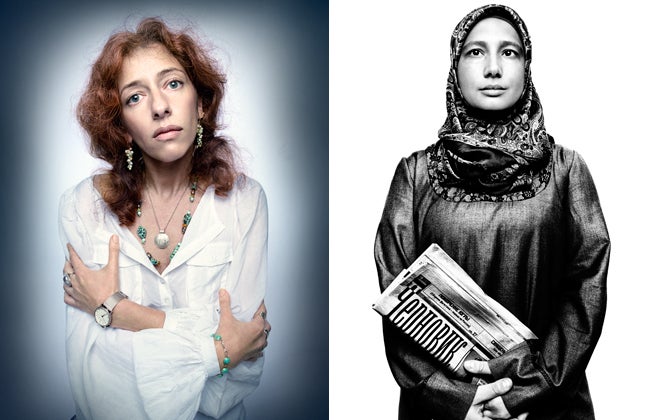Sebastián Piñera’s government has reformed Chile’s counterterrorism law and military justice system, eliminating important elements that were incompatible with international standards of due process. Nonetheless, while military courts no longer exercise jurisdiction over civilians, they continue to try police accused of human rights abuses. And while the Piñera administration has not pressed “terrorism” charges against indigenous protesters, some prosecutors have continued to charge them under the counterterrorism law for actions that should be considered common crimes.
The government took some important steps in 2011 to remedy overcrowding and inhumane conditions in Chilean prisons, but they remain a serious problem.
Most recorded cases of extrajudicial executions and enforced disappearances committed during military rule (1973-1990) have been heard in court or are now under judicial investigation. Judges continue to convict former military personnel for these crimes. However, given the seriousness of the crimes, final sentences are often unacceptably lenient.
Police Abuses
Cases of excessive use of force by police when dealing with detainees during demonstrations and Mapuche land occupations continue to be reported. In August 2011 acarabinero (uniformed policeman) shot and killed a 16-year-old student, Manuel Gutiérrez Reynoso, who had been watching a demonstration from a Santiago footbridge during a national strike. A police general—who had brushed aside accusations that the police were responsible for the incident—was fired, together with the alleged culprit and several other junior officers. A military prosecutor was investigating the case at the end of September.
Since 2002, police have been responsible for the deaths of at least three Mapuches (Chile’s largest indigenous group). A military court trial of a police sergeant who, in August 2009, shot dead Jaime Mendoza Collío, a 24-year-old Mapuche who had been participating in a land occupation near Ercilla, continued in 2011. Police claimed the officer acted in self- defense, but forensic reports indicated the bullet hit Mendoza’s back and that he had not fired a weapon.
Military Jurisdiction
Following the recommendations of the Inter-American Court of Human Rights in its 2005 ruling against Chile in the Palamara case, legislation introduced by Piñera’s administration— and approved by Congress in September 2010—finally ended the jurisdiction of military courts over civilians. However, the reforms did not address jurisdiction over abuses against civilians by police, which is still exercised by military courts that are not fully independent.
Counterterrorism Laws
The inappropriate use of counterterrorism legislation to deal with common crimes against property, such as arson committed by indigenous Mapuche activists, remains an important due process issue. In September 2010, following concern expressed by the United Nations and regional human rights bodies and a hunger strike by Mapuche prisoners, the government amended the counterterrorism law. Some due process guarantees were strengthened, such as allowing witnesses whose identity can be concealed by prosecutors to be cross-examined by defense attorneys. However, the inclusion in the law of crimes against property without violence to persons was left unchanged, and public prosecutors continued to apply the law to such cases.
In February 2011 a court in Cañete, in the Araucanía region, sentenced a Mapuche leader to 25 years in prison and three others to 20 years for “the attempted murder” of a senior prosecutor and the “robbery with intimidation” of a landowner. The charges were initially brought under the counterterrorism law, but the court dismissed terrorism charges against all the defendants, and acquitted 17 other defendants. Defense lawyers appealed the convictions, alleging the court had allowed counterterrorism procedures such as the use of anonymous witnesses during the trial even though it had thrown out counterterrorism charges. In June the Supreme Court downgraded the murder charge to one of “wounding” and reduced the 25 and 20 year sentences to 14 and 8 years respectively.
In May 2011 the National Institute of Human Rights, an official body created in 2009 to promote and defend human rights, issued a statement criticizing use of counterterrorism law against Mapuches.
Prison Conditions
Conditions in many prisons are deplorable. Sanitation, ventilation, and nutrition are poor and potable water insufficient. Despite conditions conducive to ill-health and the spread of infectious disease, access to medical care remains inadequate. In December 2010, 81 prisoners died and 14 were seriously injured in a fire at Santiago’s San Miguel prison that started after a fight between inmates in which a flame thrower made from gas cylinder was used. The prison, which has room for 1,100 inmates, held 1,900 prisoners at the time; only four prison guards were reportedly on duty inside the building.
In his annual address in March 2011 Chief Justice Milton Juica stated that the prison system was in “absolute collapse” and constituted a “grave lack of respect for the rights and guarantees of those who are deprived of their liberty.” Government officials acknowledged that prisons were 60 percent over capacity, reaching 200 percent in the worst affected ones. According to a report issued in March 2010 by a government-appointed prison review commission, the problems stem from delays in building new facilities, the introduction of faster criminal procedures and harsher sentencing policies, and the failure to effectively implement alternatives to prison.
Responding to the crisis, the Ministry of Justice has introduced legislation to allow the release of low-risk prisoners, and to strengthen alternatives to custodial sentences. In August 2011 the Senate approved two bills to this effect: the first allows the release of individuals imprisoned for non-payment of fines, and would prevent their future incarceration by replacing prison sentences for this offense with community service; the second allows the release of convicted prisoners already on day release and women who had served two-thirds of their sentence, unless serious crimes were involved. At this writing approval of the legislation depended on a vote in the Chamber of Deputies.
Confronting Past Abuses
More than three-quarters of the 3,186 documented killings and “disappearances” under military rule have been heard by courts or are now under court jurisdiction, according to Diego Portales University’s Human Rights Observatory, an NGO that monitors progress in human rights trials. By the end of May 2011, 1,446 judicial investigations into human rights abuses under military rule had been completed or were underway, and 245 former security service agents had been convicted and sentenced in the final instance. However, only 66 were actually serving prison sentences at the end of May.
In many cases, the Supreme Court has used its discretionary powers to reduce sentences against human rights violators in recognition of the time elapsed since the criminal act. Often the sentence finally imposed is low enough to exempt those convicted from going to prison. This practice raises concerns about Chile's fulfillment of its obligation to hold accountable perpetrators of crimes against humanity by imposing appropriate punishment or sanctions.
Reproductive Rights
Chile is one of only three countries in Latin America (El Salvador and Nicaragua are the other two) with an absolute prohibition on abortion, even in cases of medical necessity. The prohibition has existed in Chile’s Constitution since 1989. Women prevented from receiving therapeutic abortions sometimes turn to unsafe and clandestine procedures that can threaten their life and safety. Such an absolute prohibition violates a woman’s fundamental right to the highest attainable standard of health, life, nondiscrimination, physical integrity, and freedom from cruel, inhuman, or degrading treatment. Legislation pending before Congress would provide avenues for legal therapeutic abortions in certain cases.
Sexual Orientation and Gender Identity
In August 2011 Piñera tabled a bill in the Senate seeking to legalize informal unions, whether of heterosexual or gay couples, a reform he had promised during the 2009 electoral campaign. Some 2 million Chileans currently live in informal unions without the legal rights that married couples enjoy.
Following the presentation of a writ asking for protection of their constitutional rights by two gay couples, the Santiago Appeals Court asked the Constitutional Tribunal to rule on the constitutionality of a civil code article affirming that marriage is a contract between a man and a woman. In November the court ruled that the regulation of marriage was a legal and not a constitutional matter, and was therefore subject to a vote in the legislature.
In November the Senate voted to include discrimination based on gender or sexual orientation in an anti-discrimination bill currently under debate in the legislature.
Key International Actors
In August 2011 the Inter-American Commission on Human Rights took the case of seven Mapuche leaders and a pro-Mapuche activist who were tried in 2003 under Chile’s counterterrorism law to the Inter-American Court of Human Rights, alleging their prosecution under the law was discriminatory.
